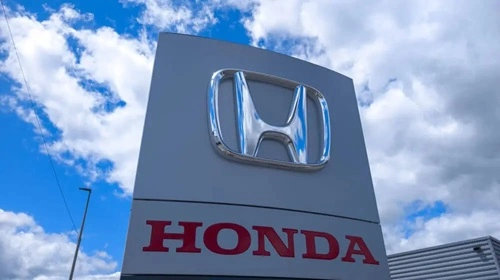Honda engine defect class action has been a significant issue to numerous owners of Honda and Acura, in the United States. Some of the recent lawsuits against Honda in California allege that the company has serious design defects in turbocharged engines on some of their models such as the Accord, Civic, and CR-V. These vices are said to lead to overheating, leakages of coolant and total engine failure. This has made many of the drivers end up paying high repair bills and posing a serious threat to their safety.
The lawsuits suggest that affected vehicles are the Honda Accord, 2018-2022, the Honda Civic, 2016-2022, the Honda CR-V, 2017-2022, the Acura RDX, 2021-2022, and the Acura TLX, 2019-2022. All these models are turbocharged engines, which are said to have poor capacity to withstand high compression and heat. Consequently, the engines may experience head gasket damage that would also enable coolant to get into the cylinders and pollute the engine oil.

What the Lawsuit Claims
The plaintiffs believe that Honda has been aware of the problem over years yet it did not inform the customers or ensure effective remedies. According to the Honda engine defect class action, the automaker developed engines, which were incapable of taking the additional load of turbocharging with an engine that would cause severe damage over time.
Once coolant enters the engine, it can dilute the oil, leading to corrosion and excessive wear. There have been cases of full engine failure when driving wherein cars suddenly lose power on highways. These conditions lead to and result in financial strains as well as posing safety risks to both the drivers and the passengers.
In one case, an owner of a 2018 Honda Accord complained that his head gasket broke twice in less than two months, and each time the cost surpassed 2500 dollars in repairs. The National Highway Traffic Safety Administration (NHTSA) has also received many complaints filed by many other drivers who reported about the similar problems that included the leak of coolant, overheating engines and those that caught fire.
Safety and Financial Concerns for Drivers
The litigation reflects a couple of critical issues: safety and cost. Unforeseen loss of power caused by some defects in the engines can be very dangerous particularly when it is taking place in a busy road or highway. The drivers have claimed that their cars have been stalled or coasting without any notice, which poses a vivid danger of collisions.
From a financial perspective, the repairs can be expensive. Many owners report that Honda refuses to pay the costs or denies the problem when the vehicles are under warranty. This has continued to leave several customers paying out of hand on various larger engine repairs that can cost in thousands of dollars.
Moreover, according to plaintiffs, the problems decrease the general value of the cars. Cars with defective engines are more difficult to sell or trade and the owners get lower resales value and feel insecure about their engine problems.
What Honda Owners Should Do
Action must be taken by owners of Honda who encounter such kinds of problems. The following are some of the essential steps:
- Document Everything: Store all service records, receipts and contacts with dealerships of Honda or the customer service.
- File a Complaint: Report the problem to the NHTSA. Such reports contribute to developing evidence of large-scale malfunctions.
- Hire an Attorney: You should hire an attorney to assist in establishing whether you can be a part of the Honda engine defect class action and to advise as to potential compensation.
- Check Warranty Coverage: Although coverage may be denied by Honda in the first instance, you still could receive repairs or reimbursements in case the class action works.
Others already have become members of the suit demanding compensation of the money invested in repairing their vehicles, loss of value, and miscellaneous damages in respect of safety hazards.
What the Lawsuit Seeks to Achieve
The Honda engine defects class action seeks to hold Honda liable over claims of selling defective vehicles. The plaintiffs are demanding a jury trial, liquid damages and injunction to compel Honda to fix the defect impacting all the customers.
They claim that Honda did not correct the situation, and it contravened the consumer protection laws and warranty. A successful case would mean that the owners would receive compensation and it may also result in the company redesigning or recalling the affected engines.
The Bigger Picture for Consumers
This suit will act as a wakeup call to the U.S. consumers to ensure that they have the information regarding possible vehicle flaws. The automakers bear the duty of ensuring that their products are safe and reliable particularly where the products are being sold as family vehicles that are durable.
Drivers that suspect there is something wrong with their engines must not disregard the warning signs. Such issues as overheating, power loss, and leakage of coolant are to be inspected upon detection. Early notification will save additional damage and increase the likelihood of winning a case when your car is involved in the case.
Conclusion
The Honda engine defect class action raises the important issues of engine reliability and corporate responsibility. Honda cars provide comfort, safety and performance to thousands of the U.S. drivers. In case the accusations are effective, this case may bring more openness and responsibility to the car industry.
In the meantime, concerned Honda and Acura customers are expected to keep up with the case and take proactive measures to defend their rights. During a legal action or documenting of repairs, advocating the rights of consumers will be a futuristic change to all drivers.